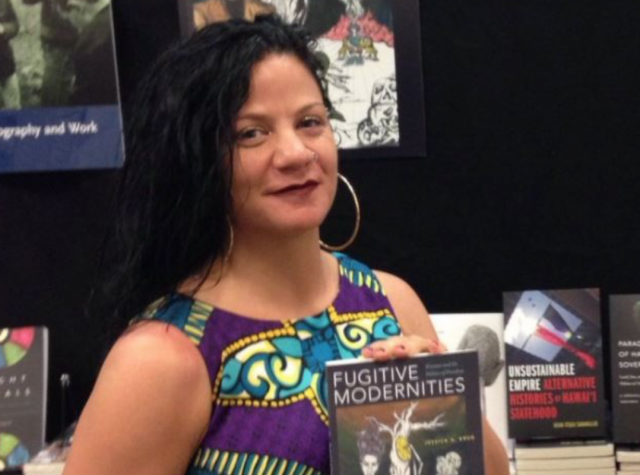It has been a month since Jessica Krug, a white Jewish woman from Kansas City, exposed her decades-long appropriation of a Black identity in a now-viral Medium post. Krug had cycled through various Black diasporic identities before settling on what she defines as “Caribbean rooted Bronx Blackness.”
But as the news cycle moved on, the trend of ‘blackfishing’ has, unfortunately, not. The term is a play on ‘catfishing’ which refers to individuals who pretend to be someone they’re not online. The confluence of the influencer and entertainment industries, most notably the Kardashian franchise, popularized ‘blackfishing,’ which can include using filters and lotions to make one’s skin look darker. Just last week, a Twitter user retweeted a picture that went viral of Kim Kardashian with the words “Madison Kimdashian Grande,” in a layered implication of other famous figures who have, in the past, also been accused of darkening their skin and trying to pass as Black or mixed-race.
madison kimdashian grande https://t.co/O8LMTXY5Yo
— james ᵇˡᵐ (@redputationaotd) September 30, 2020
Jessica Krug has been referred to as “a symptom of a far bigger problem,” namely of the increasingly blurred lines between cultural appropriation and appreciation. She has since been investigated by and resigned from George Washington University where she served as associate professor of imperialism, Africa, and African diaspora. She was also publicly denounced by colleagues and friends. Her former publisher, Gisela Fosado, has revealed that the worst part of her deceptions was her caricature of Black people that “deployed gross racial stereotypes” and the fact that, early in her career, Krug availed resources specifically reserved for marginalized communities.
While claiming to be a child of addicts from the hood, she boasted about speaking numerous languages, reading ancient texts, and mastering disciplinary methods—while questioning the work of real WOC doing transformative interdisciplinary work that she PANNED.
— Yarimar Bonilla (@yarimarbonilla) September 3, 2020
While Krug’s case has certainly garnered a lot of attention and been widely criticized, for many this has not proven enough. Blackfishing, in a sense, is a derivative of Black-face or brown-face. But instead of mocking those with darker skin, it capitalises off of the exociticisation of historically oppressed communities. This both takes away from creators who are actually Black and brown and also fails to recognize the historical socio-economic struggles of those communities. In this moment where we might finally be on track to appreciate marginalized people, it is important to identify and actively work against trends that seek to exploit the positive turns in our culture.
so yall throwing jessica krug under the bus but we been straight watching the kardashian clan shapeshift and metamorphosize into black women for over a decade pic.twitter.com/DzbcgDG6Ql
— shanequa gay (@shanequagay) September 3, 2020




